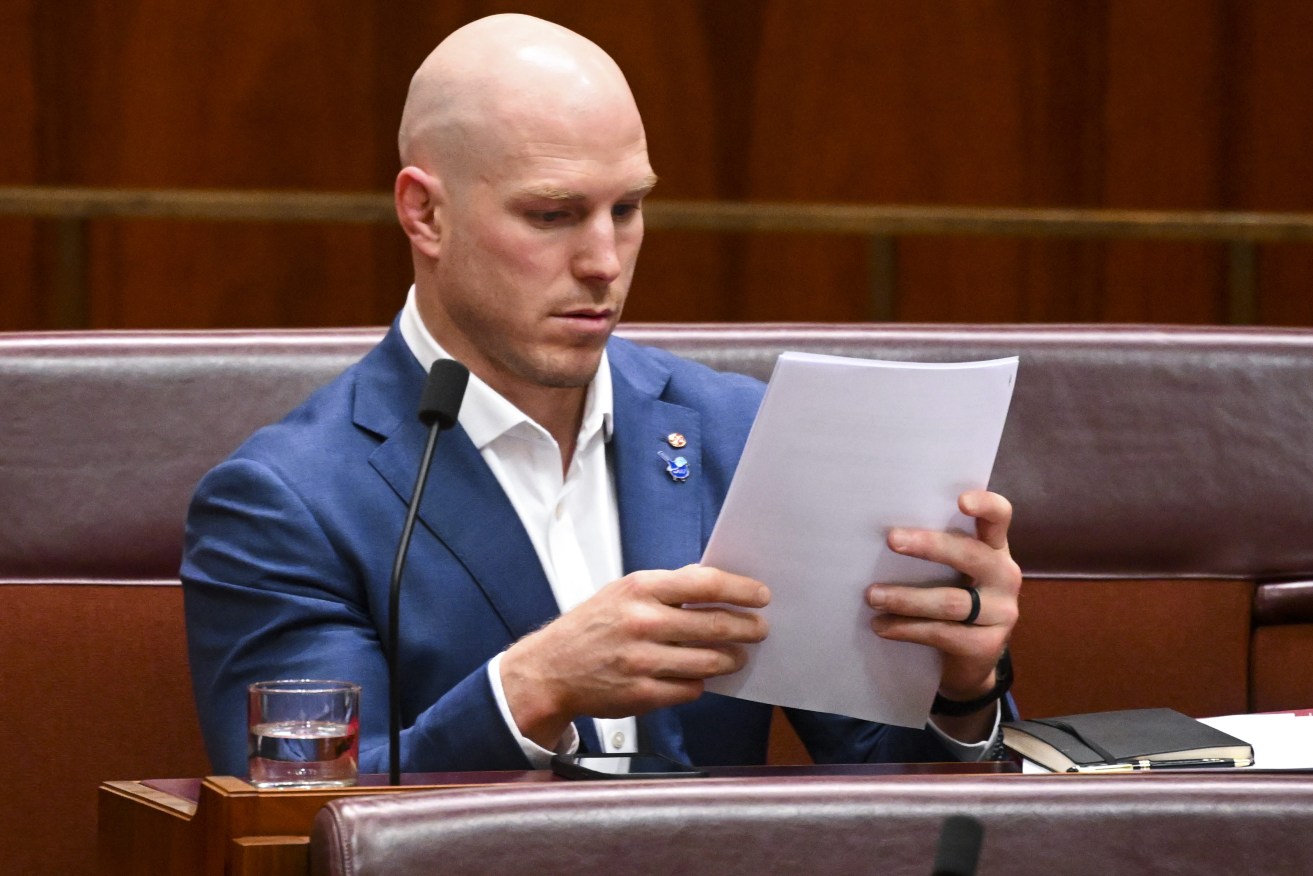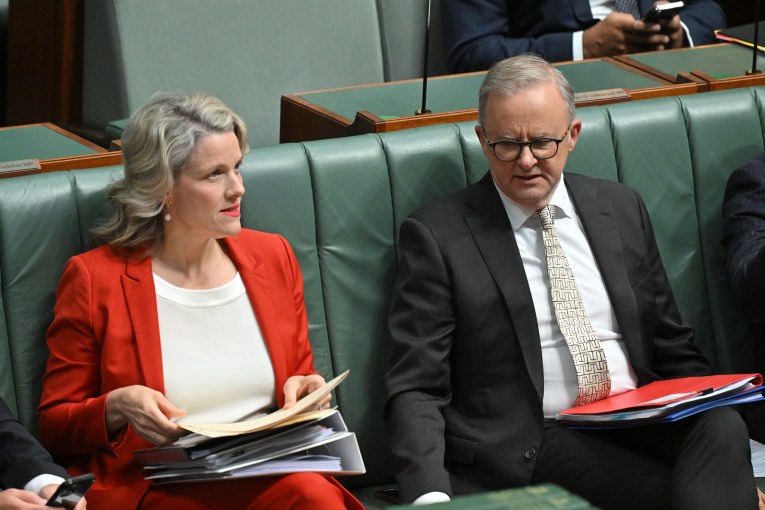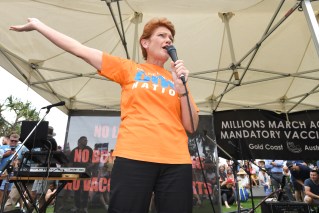New bargaining model would help narrow the gender pay gap, says ACTU
Multi-employer bargaining would narrow the gender pay gap for working women, according to an ACTU report.

Independent Senator David Pocock pictured in the Senate chamber at Parliament House in Canberra. (AAP Image/Lukas Coch)
As expected, the research backs planned legislative changes to the industrial relations regime that the federal government is trying to get passed before year-end.
“Multi-employer bargaining, and especially the single interest and supported streams, are critical for closing the gender pay gap,” ACTU President Michele O’Neil said on Thursday.
“Giving more women – both in industries with larger pay gaps and industries with more women – access to bargaining benefits those workers, but also the economy.”
Employer groups are pushing back against multi-employer bargaining, arguing it would hurt small businesses, create dislocation and drive industrial relations disputes.
The 12-page ACTU report – ‘Reducing the Gender Pay Gap with multi-employer bargaining’ – says women on collective agreements earn $102.60 more per week on average than women not covered by collective agreements.
“Gender equity is a matter that can be bargained for and included in collective agreements,” it adds.
The research notes progress in narrowing the gender pay gap has flatlined and even regressed in some sectors.
The gender pay gap is 14.1 per cent of full-time ordinary time earnings between women and men, or about $263.90 per week.
“However, the gender pay gap between all employees and comparing all of their earnings is far larger at 29.7 per cent or $471 per week,” it said.
The report said there was “overwhelming” evidence of how multi-employer bargaining can get wages moving and deliver pay equity to women.
“The ACTU urges the Australian Parliament to promptly pass the Secure Jobs Better Pay Bill in its entirety,” it concluded.
On Wednesday, the government was warily weighing up a change to the definition of a small business in its bill in order to it through the Senate.
Workplace Relations Minister Tony Burke warned increasing the definition of a small business from 15 to 20 workers – as recommended by an inquiry report into the bill – would be a significant change.
If the government does accept that recommendation (from 15 to 20 workers) it means 97.5 per cent of businesses are excluded from that stream – 2.5 million businesses would be excluded from that stream,” he told parliament.
Independent senators David Pocock and Jacqui Lambie, and 12 Greens senators, are key to the bill passing in the last parliamentary sitting session for the year.
Senator Pocock has said he supports 85 to 90 per cent of the bill but wants time to consider the impact of more complex aspects such as multi-employer bargaining.
The Australian Chamber of Commerce and Industry says the government has vastly underestimated the direct cost to business of multi-enterprise bargaining.











